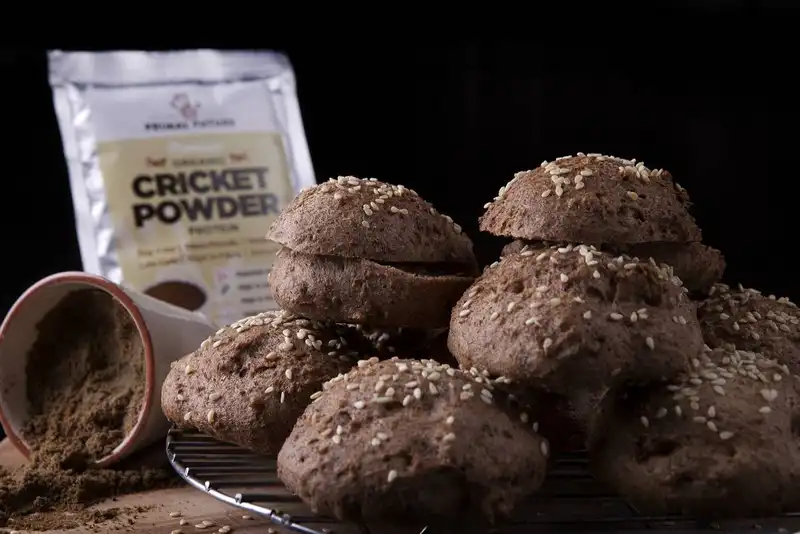The Impact and Innovations of Food Processing Technology
How Tech Impacts The Food Industry

Food processing technology helps food manufacturers produce food for consumption in a more efficient and timely manner. With the growing population the demand for food grows as well. Having improvements to food processing will allow manufacturers to meet that demand safely and efficiently.
Robotics and Machines
Science technology has advanced far enough along that robotics and machines have made food processing more automated. This processing technology keeps costs down and increases productivity all while ensuring food safety and quality remains.
In fact, the use of robotics has helped to eliminate potential safety issues in the food industry. An example would be the new types of techniques used for butchery. Robotics are used to carve the more difficult cuts of meat which keeps workers safe from injury.
3D Printing
3D printing has become a revolutionary part of food science technology. It has been used in NASA to created 3D printed food. These processing technologies are now being used in more commercial industries.
One example is using the 3D science technology for creating food that is softer to chew for those who find harder foods difficult to consume. Having technology processing like 3D printing allows new pathways for the innovation of other food processing technology within the food industry.
Drones
Drones are used in precision agriculture. Through GPS tracking the drones can locate areas of crops and gather information. In conjunction with satellite images, they use the combined analysis to report and monitor soil levels or weather patterns. The drones can also identify a patch of bad crops so they can be tended to quickly.
The drones are food processing technologies that helps farm workers be more efficient. Because food laws have strict food product requirements, the drone science technology helps the farmers work their food process faster.
Packaging and Waste
Food products that are not only healthy but sustainable is what consumers are looking for today. Knowing this, companies in the food industry are under high pressure to have start processing food packaging in a more eco-friendly manner.
Food science has created many ways to deliver packaging for food safety and the environment. Processing technology has developed packaging that is edible or fights off bacteria and science technology continues to find alternatives to packaging that might be harmful to the environment.
Food processing technology has also made a concerted effort to avoid food waste. Following all food laws and using processing technologies the food is now being used instead of wasted.
With so many innovations being made through food science, the evolving processing technology can change to future of the food industry from food processing to food safety.
Innovative Technologies for Food Processing
Population trends are showcasing a growing need for food products in the next few decades. To counter this need, innovation in technology is needed to ensure crops, and other sources of food, continue to yield the needed amount. Some types of technology are already being used, such as-
- Lab-grown meat
The idea for meat grown in a lab used to be the stuff of sci-fi movies. Now, start-ups are predicating lab-grown or cultured meat could be on supermarket shelves very soon. In 2013, the first attempt at a lab-grown burger yielded a $280,000 production costs. Now, business in the food industry believe they have streamlined the science technology to deliver a burger for just $10 each.
Because the demand for meat around the world has increased by 70 percent, food science has pressure processing synthetic meats. By 2040, synthetic meat or plant-based substitutes for meat could make up 60 percent of the meat consumed.
- Biodegradable packaging
The use of plastic is a problem that is trying to be solved by experts in the food industry. Many companies are focusing on the development of biodegradable alternatives to control food waste. For example, food science is now using 8 tons of shellfish that used to be wasted each and turning it into chitosan. The chitosan is then uses as a biodegradable plastic wrap that could be used in food packaging.
- Ghost kitchens
The United States sees a large sector of the profits in the food industry coming from delivery services. However, as more side delivery services grow the restaurants themselves are taking a hit as they lose commission to something like Uber Eats.
To counter the loss, cloud kitchens or "ghost kitchens" are being used. The business model focuses on only fast-food delivery options. There is no dining area which considerably cuts down on expenses like rent costs. More ghost kitchens are expected to crop up in the future.
- Vertical farming
Vertical farming could reinvent the way agriculture is done. The term refers to crops grown indoors. Vertical farms are usually found inside warehouses and located in urban areas.
These urban farms can be an alternative for countries where farmland is in limited supply. Vertical farms also use less water. One drawback is the amount of energy needed to sustain a vertical farm through hydroponic systems and artificial light. More sustainable options are being looked at for future innovations.
- Super Crops
Crops require fluidity to go along with the changes in climate. With extreme weather, more resilient crops need to be produced. This is done through bio-fortification and selective breeding to create "super crops."
Micronutrients are added to foods during the agricultural stage by crossing certain varieties of plants with more wilder versions. The genetic modification looks to make crops more drought-resistant. An example of a "super crop" would be what's called "scuba rice." This rice can survive for two weeks under water. Other foods like iron-rich beans and quinoa are also being modified to withstand temperature changes.
A Final Look at Food Processing Technology

- Food processing technology makes food processing easier and more efficient.
- Food science has created packaging for the food industry that are safer for the environment.
- "Ghost kitchens" are business models that only focus on fast-food delivery options.
- Crops resilient to temperature and extreme weather are being created through bio-fortification and selective breeding to create "super crops."





